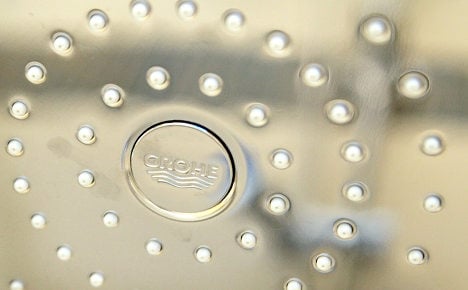Bathroom fittings producer Grohe said in a statement that the sale of 87.5 percent of the firm to building materials company Lixil and Development Bank of Japan “represents the largest ever German investment by a Japanese company.”
Current owners – US investment fund TPG and DLJ Merchant Banking Partners, part of Swiss bank Credit Suisse – will sell their stakes to a company jointly owned by Lixil and Development Bank of Japan.
“The implied enterprise value, including the assumption of debt, is €3.06 billion. The transaction is subject to customary regulatory and antitrust approvals and is expected to close in the first quarter of 2014,” the statement said.
“The combined sanitary businesses of both groups generate more than €4.0 billion of annual revenue, making it the largest player in its industry,” Grohe added.
Grohe said its chief executive David Haines would “remain in this position and has signed a new five-year contract.”
Lixil and Development Bank of Japan will have seats on the supervisory board of the Luxembourg-based holding company. Earlier this year, Grohe raised its stake in Chinese group Joyou.
“For Joyou in particular, this new partnership will be of enormous benefit, as our ability to grow and strengthen the brand in the Asia-Pacific region will be enhanced,” Haines said.
Lixil president Yoshiaki Fukimori described Grohe as “one of the most well-known brands in the global sanitary market.”
AFP/jcw



 Please whitelist us to continue reading.
Please whitelist us to continue reading.
Member comments